Sea Buckthorn Oil For Skin: 6 Benefits And How To Use It
Incorporate an antioxidant-rich oil into your skincare routine to restore your skin's radiance.
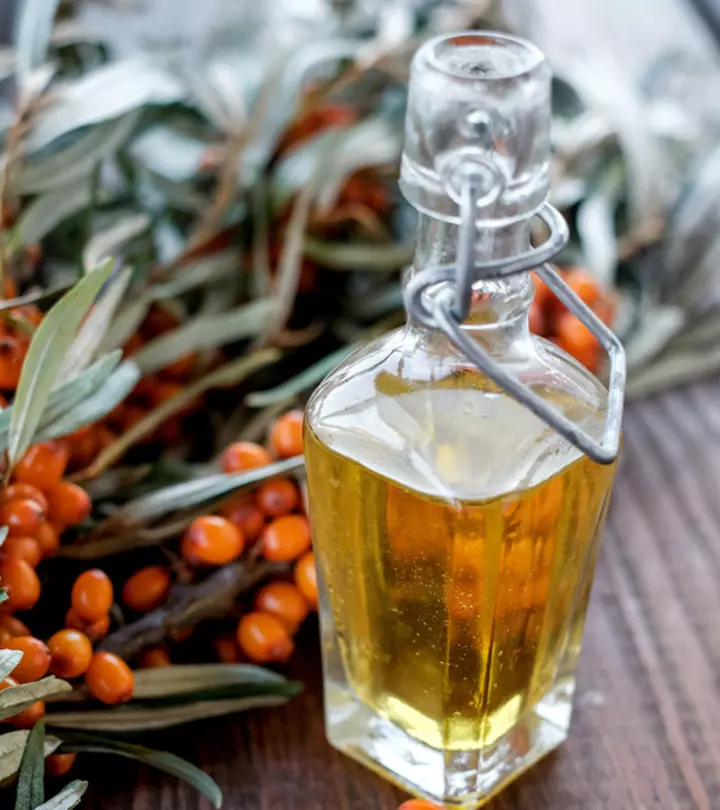
Image: ShutterStock
Using sea buckthorn oil for the skin is an excellent way to strengthen and replenish its natural barrier. This oil, extracted from the sea buckthorn plant, is rich in antioxidants like vitamin C and several bioactive compounds. Thus, it is a commonly used ingredient in many skin care products. It helps you get glowing and supple skin and improve its elasticity. That’s not all! Sea buckthorn oil also helps improve blood circulation, skin vitality, and complexion. In this article, we will look into the benefits of sea buckthorn oil for the skin and how to use it to achieve desired results. Keep reading.
In This Article
What Is Sea Buckthorn Oil?
Sea buckthorn oil is a red-orangish oil derived from the sea buckthorn plant. It is extracted through a mechanical cold-pressing technique.
The oil contains antioxidants, flavonoids, vitamin C, polyphenols, and more. It also is rich in other bioactive substances like unsaturated fatty acids, essential vitamins, carotenoids, fruit acids, mineral salts, and amino acids (1).
 Did You Know?
Did You Know?Its balanced composition of fatty acids makes it highly efficient for treating multiple skin issues. We will explore the same in the next section.
Key Takeaways
- Sea buckthorn oil is a moisturizing oil packed with antioxidants and several bioactive compounds that benefit the skin.
- It improves skin elasticity, reduces the signs of premature aging, enhances the complexion, and is suitable for most skin types.
- You can use it as a standalone product or mix it with a serum or a moisturizer.
Benefits Of Sea Buckthorn Oil For Skin
1. May Treat Inflammatory Skin Conditions
Sea buckthorn oil contains a blend of omega 3, 6, 7, and 9 fatty acids. This combination helps repair the skin barrier and treats inflammatory skin conditions such as eczema and psoriasis (1).
2. May Offer Deep Hydration
Sea buckthorn oil can be recommended for deep skin hydration. It functions as a humectant, preserving moisture and preventing moisture loss. It could be particularly useful for parched and dehydrated skin types.
3. Improves Overall Skin Appearance
The unique combination of vitamins, minerals, and antioxidants in sea buckthorn oil may boost overall skin appearance. In addition, the berries of the sea buckthorn plant are believed to have 12 times more vitamin C than oranges and may offer skin an excellent antioxidant boost (2). It may also enhance skin texture and diminish age spots.
4. May Reduce Signs Of Premature Aging
The antioxidants in sea buckthorn oil, including vitamins C and E, may help reduce skin damage due to free radicals. Both vitamins are known to fight oxidative damage when used in conjunction. They also limit damage to cell membranes and may slow down premature aging (3). To combat aging, pair sea buckthorn oil with essential oils for wrinkles and maintain a smooth complexion.
The palmitoleic acid in the oil is also believed to reduce scars and fine lines. However, limited research is available in this area.
5. May Improve Skin’s Structural Integrity
Sea buckthorn oil offers protection against bacterial infections, reduces inflammation, and promotes the generation of tissue lipids. The gamma-linolenic acid in the oil is known to improve the skin’s structural integrity (1).
6. Suits Most Skin Types
Applying sea buckthorn oil on the skin does not make it appear oilier. Its unique ingredients are easily absorbed into the skin. Hence, the oil can be used both by individuals with dry and oily skin. Anecdotal evidence suggests that it may also be used on sensitive skin.
 Trivia
TriviaNow that we have established the important benefits of sea buckthorn for skin, let us understand how you can incorporate it into your skincare routine.
What’s The Best Way To Incorporate Sea Buckthorn Oil Into Your Skin Care Routine?
You can either use sea buckthorn oil as a standalone product or in combination with several other oils. Here are some ideas:
- If you can find the oil in its pure form, you can apply it as a sealant to moisture your skin. It will go well with any serum or moisturize product. Do not apply the oil before using any water-based or gel-based creams or lotions, as you may end up sealing your skin and not allow the beneficial ingredients to penetrate your skin.
- If you cannot find a pure version of sea buckthorn oil, you may go for a serum containing sea buckthorn in combination with several other ingredients. Serums of such nature should go under a moisturizer to reach the deeper layers of the skin.
As with any skin care oil, some individuals may experience certain side effects while using sea buckthorn oil. Let us take a look at it.
Possible Side Effects Of Sea Buckthorn Oil
While sea buckthorn oil can work wonders for your skin, anecdotal evidence suggests that applying sea buckthorn oil on the skin might turn it red or itchy. In a few cases, it has been found to cause a spike in blood pressure levels leading to headache, dizziness, and palpitations. Also, it may interact with other medications and slow down the process of blood clotting, hence it is best for individuals with deep cuts or injuries on the face to avoid it at all costs. In addition to that, there is no concrete evidence available to know for sure whether it is safe to use for pregnant or lactating women.
Once you decide the form of sea buckthorn oil you want to use, you can apply it to your skin to reap its many benefits. Here is how to use it:
- Wash your face with a suitable cleanser to get rid of any dirt, oil, and grime.
- Follow with a suitable toner.
- Apply any serums or active ingredients to your skin right after cleansing, including the serums with sea buckthorn oil. Let the product seep into the deepest layers of your skin.
- Use a moisturizer to boost skin hydration and maintain skin suppleness.
- Seal your skin with pure sea buckthorn oil to enhance the efficiency of your skincare routine.
You may conduct a patch test to check for any allergies. Apply some oil to your elbow and wait for 24 hours. If you do not notice any allergies, you are good to go.
Sea buckthorn oil is loaded with beneficial vitamins and minerals and can help resolve various skin issues. Some of the benefits of using sea buckthorn oil for the skin may include skin hydration, protection against infections, and treatment of inflammatory skin conditions such as eczema and psoriasis. You can either use pure sea buckthorn oil or products containing sea buckthorn. Sea buckthorn oil is suitable for all skin types. However, ensure that you conduct a patch test before using it.
Frequently Asked Questions
Does sea buckthorn oil clog pores?
No, sea buckthorn oil is considered non-comedogenic, which means it does not clog pores. This makes it suitable for all skin types.
Is sea buckthorn oil good for fungal acne?
Yes, sea buckthorn has antifungal properties that may help in the management of acne (6), (7).
Is sea buckthorn oil good for rosacea?
Yes, anecdotal evidence suggests that sea buckthorn oil contains vital vitamins and minerals that may help in treating rosacea.
Seabuckthorn oil has found widespread used in cosmetics and skincare, because it helps rejuvenate the skin and improve its appearance. Watch the following video to learn more about this rare fruit oil’s immense skin benefits.
References
Articles on StyleCraze are backed by verified information from peer-reviewed and academic research papers, reputed organizations, research institutions, and medical associations to ensure accuracy and relevance. Read our editorial policy to learn more.
- Abundance of active ingredients in sea-buckthorn oil
https://www.ncbi.nlm.nih.gov/pmc/articles/PMC5438513/ - Sea Buckthorn Oil—A Valuable Source for Cosmeceuticals
https://www.mdpi.com/2079-9284/4/4/40 - The Roles of Vitamin C in Skin Health
https://www.ncbi.nlm.nih.gov/pmc/articles/PMC5579659/ - The impact of sea buckthorn oil fatty acids on human health
https://www.ncbi.nlm.nih.gov/pmc/articles/PMC6589177/ - Trajectory analysis and optimization of sea buckthorn fruit vibration separation manipulator based on I-PSO algorithm
https://www.ncbi.nlm.nih.gov/pmc/articles/PMC10656555/ - The Effect of Sea Buckthorn (Hippophae rhamnoides L.) Seed Oil on UV-Induced Changes in Lipid Metabolism of Human Skin Cells
https://www.ncbi.nlm.nih.gov/pmc/articles/PMC6162715/ - Sea buckthorn (Hippophae rhamnoides L.) as a plant for universal application
https://www.worldscientificnews.com/wp-content/uploads/2017/01/WSN-72-2017-123-140.pdf
Read full bio of Dr. Sreekar Harinatha
Read full bio of Arshiya Syeda
Read full bio of Ramona Sinha
Read full bio of Swathi E








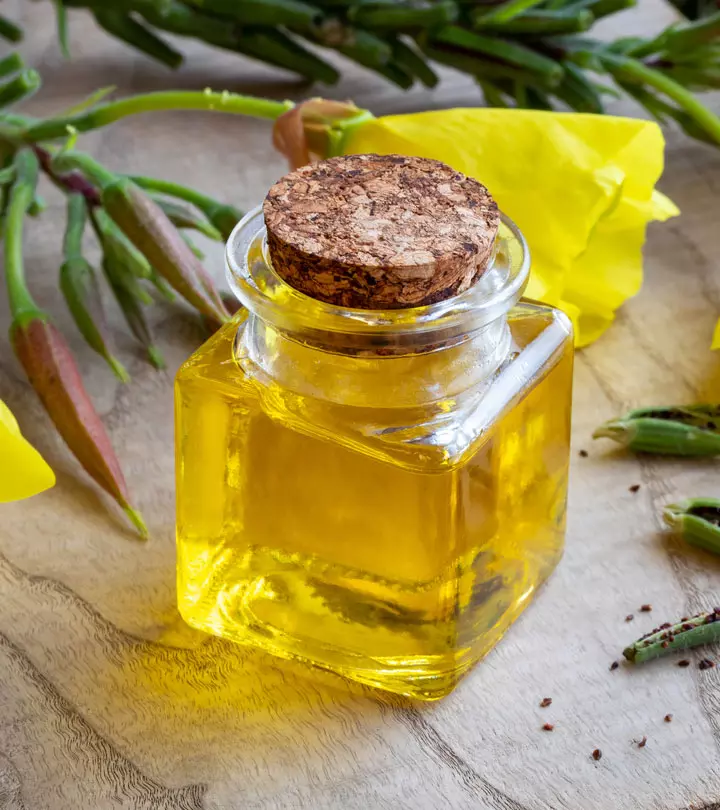
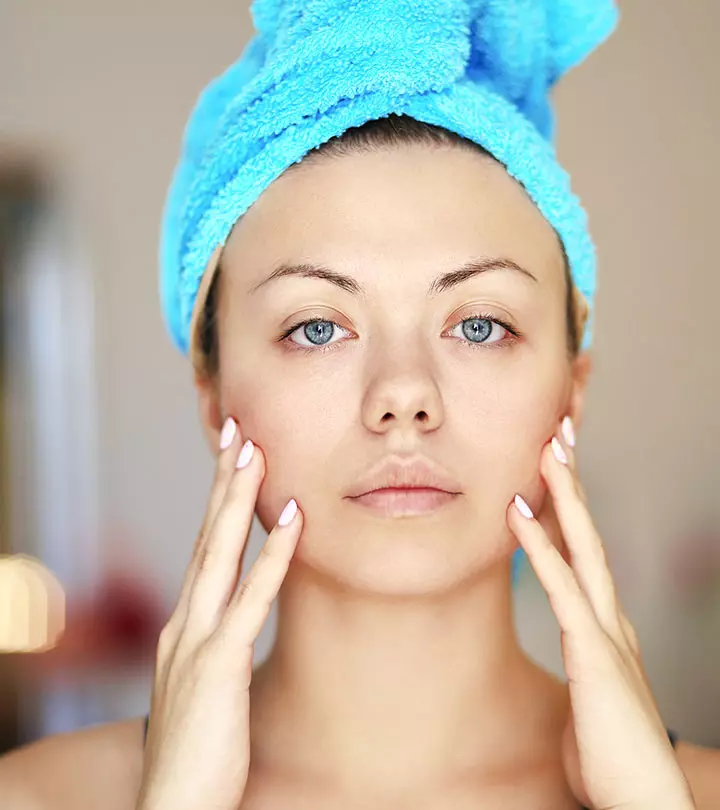


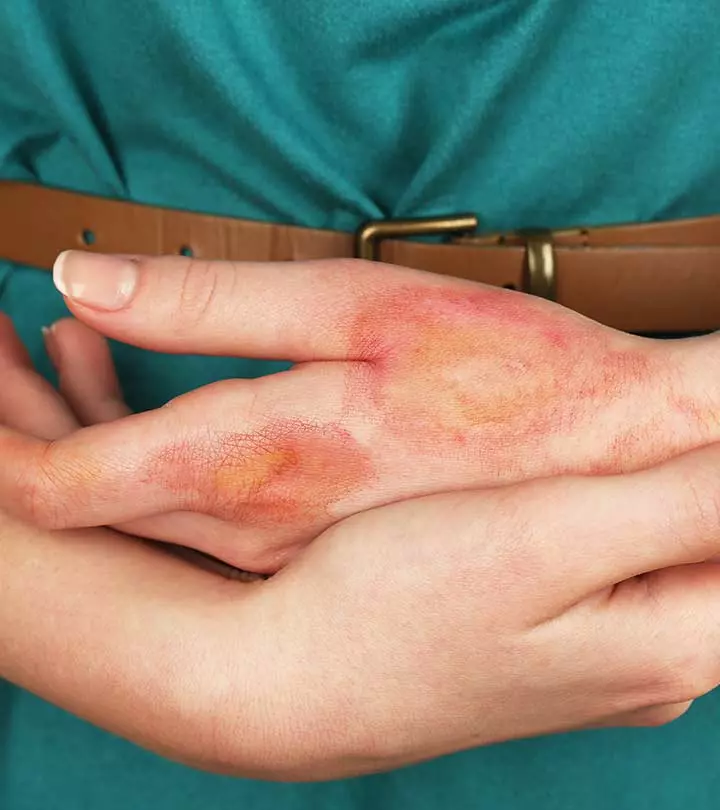
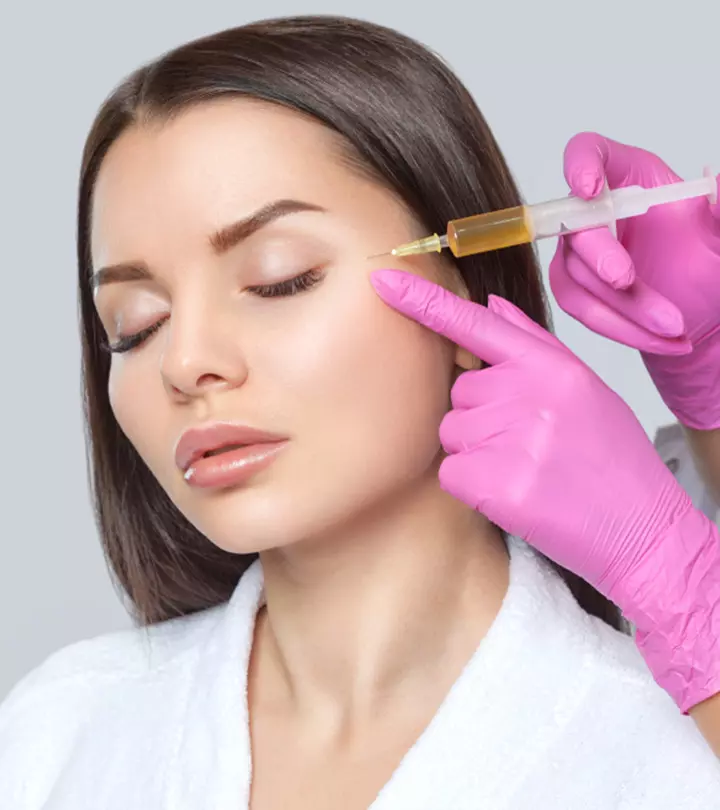


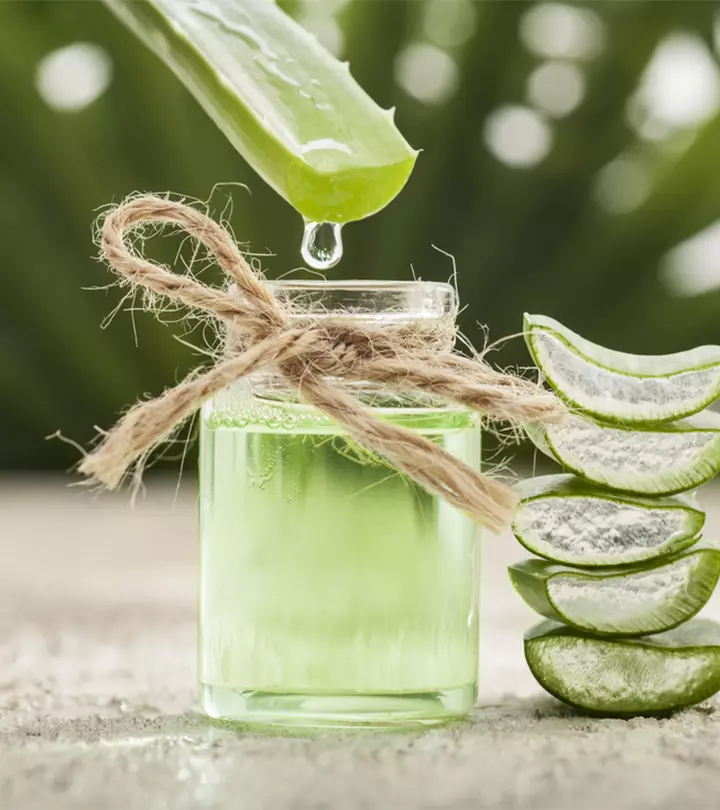
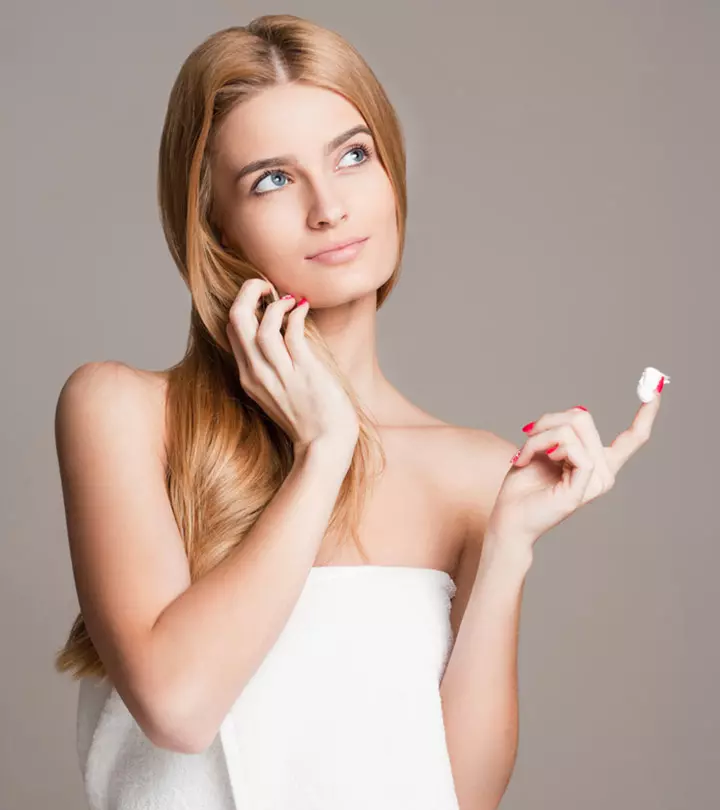
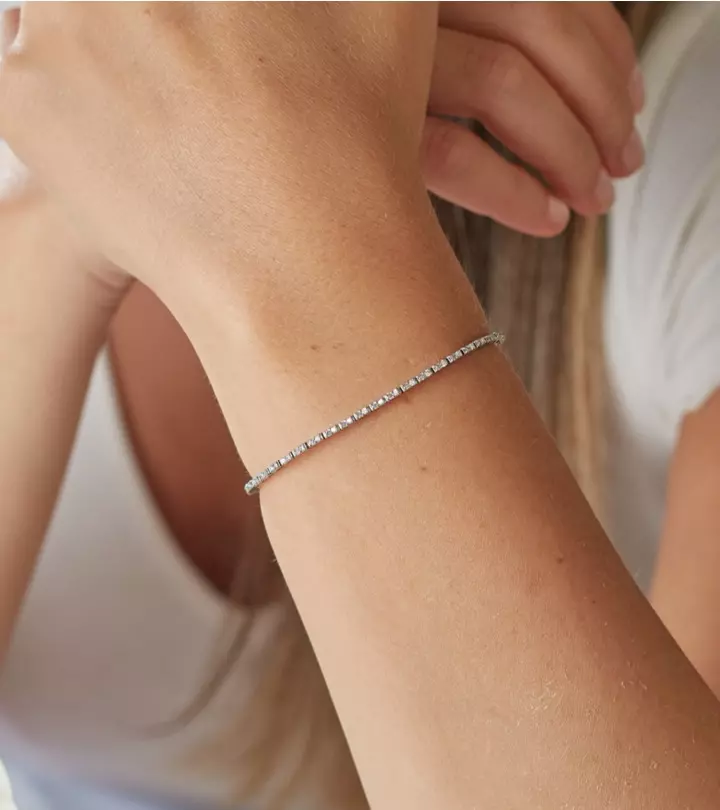
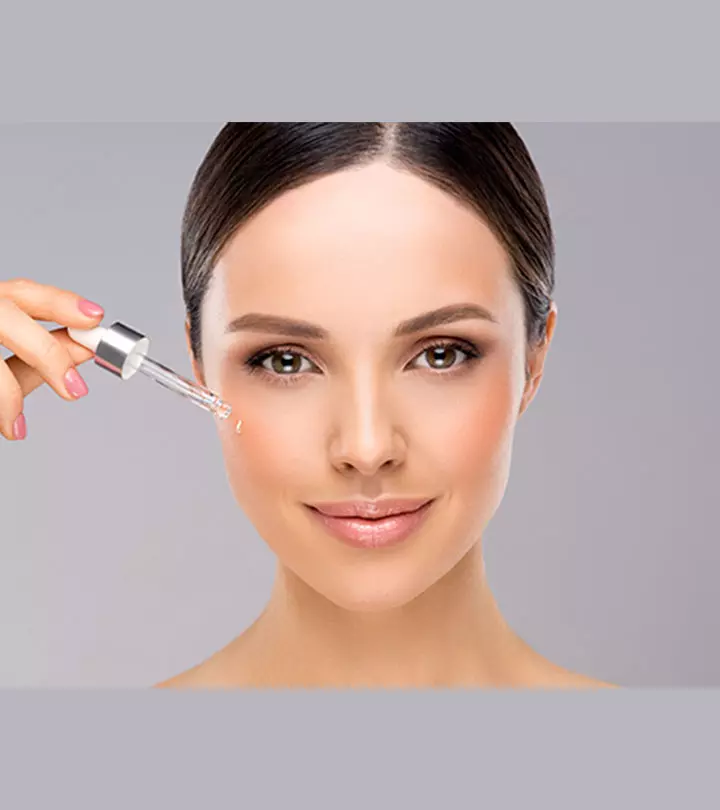
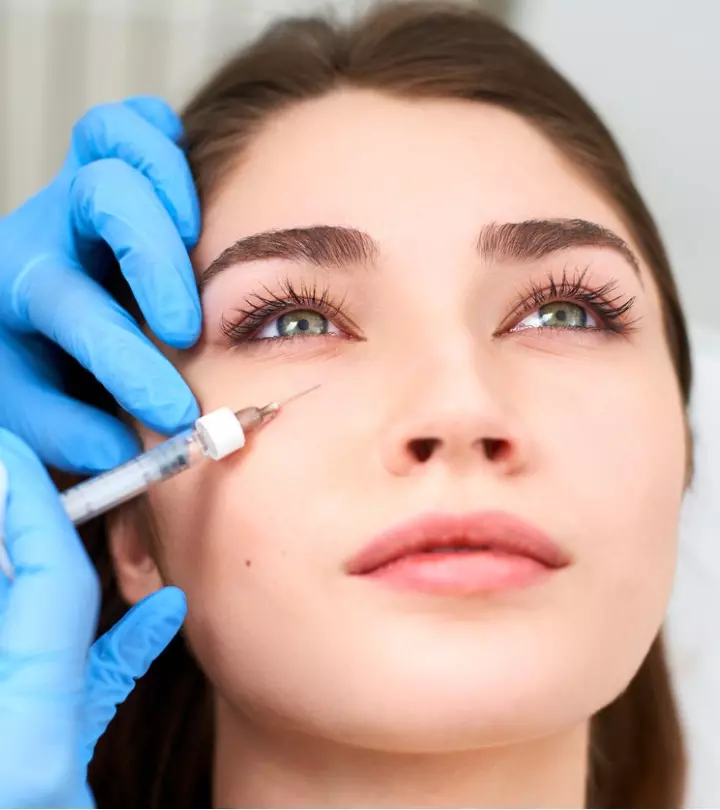

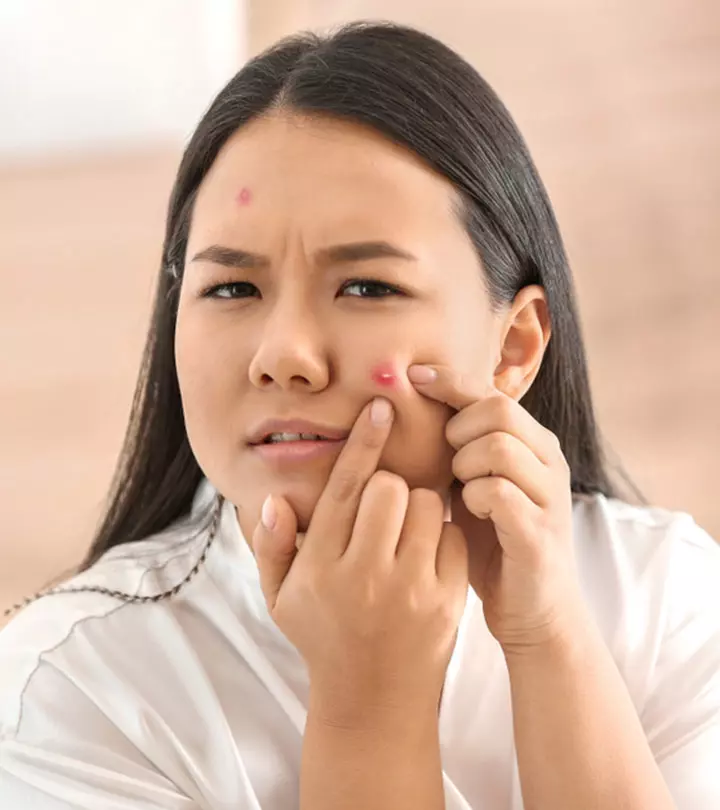
Community Experiences
Join the conversation and become a part of our empowering community! Share your stories, experiences, and insights to connect with other beauty, lifestyle, and health enthusiasts.